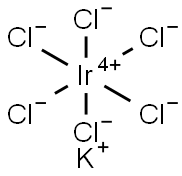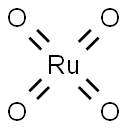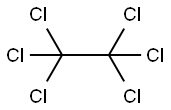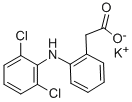Dipotassium hexachloroiridate
Synonym(s):Iridium potassium chloride
- CAS NO.:16920-56-2
- Empirical Formula: Cl6IrK-
- Molecular Weight: 444.02
- MDL number: MFCD00011369
- EINECS: 240-976-7
- SAFETY DATA SHEET (SDS)
- Update Date: 2025-07-16 09:55:28

What is Dipotassium hexachloroiridate?
Chemical properties
Black Crystalline Powder
The Uses of Dipotassium hexachloroiridate
Black pigment (porcelain decoration). The iridium (III) salt is also known: K3IrCl6, greenishyellow.
The Uses of Dipotassium hexachloroiridate
Iridium potassium chloride (K2IrCl6) is used as a black pigment to make black porcelain kitchen and bathroom fixtures.
The Uses of Dipotassium hexachloroiridate
Potassium Hexachloroiridate(IV) is a reagent with biocatalytic activity
Purification Methods
Crystallise it from hot aqueous solution containing a few drops of HNO3 to keep it in the oxidised state. It forms small shiny red-black octahedral crystals which are dried at 100o and give a red powder on grinding [Grube in Handbook of Preparative Inorganic Chemistry (Ed. Brauer) Academic Press Vol II pp 1593-1594 1965].
Properties of Dipotassium hexachloroiridate
| Melting point: | >385 °C (lit.) |
| Density | 3,546 g/cm3 |
| form | Powder |
| color | black |
| Specific Gravity | 3.546 |
| Water Solubility | Insoluble in water. |
| Sensitive | Hygroscopic |
| Stability: | Stable. Incompatible with strong reducing agents. |
| CAS DataBase Reference | 16920-56-2(CAS DataBase Reference) |
| EPA Substance Registry System | Iridate(2-), hexachloro-, dipotassium, (OC-6-11)- (16920-56-2) |
Safety information for Dipotassium hexachloroiridate
| Signal word | Warning |
| Pictogram(s) |
 Exclamation Mark Irritant GHS07 |
| GHS Hazard Statements |
H315:Skin corrosion/irritation H319:Serious eye damage/eye irritation H335:Specific target organ toxicity, single exposure;Respiratory tract irritation |
| Precautionary Statement Codes |
P261:Avoid breathing dust/fume/gas/mist/vapours/spray. P280:Wear protective gloves/protective clothing/eye protection/face protection. P301+P312:IF SWALLOWED: call a POISON CENTER or doctor/physician IF you feel unwell. P305+P351+P338:IF IN EYES: Rinse cautiously with water for several minutes. Remove contact lenses, if present and easy to do. Continuerinsing. |
Computed Descriptors for Dipotassium hexachloroiridate
New Products
4,4-Difluoropiperidine hydrochloride tert-butyl 9-methoxy-3-azaspiro[5.5]undecane-3-carboxylate Indole Methyl Resin N-Isopropylurea N,N-Dicyclohexylcarbodiimide(DCC) MELDRUMS ACID 5-METHYLISOXAZOLE-4-CARBOXYLIC ACID Magnessium Bis glycinate Zinc ascorbate 1-bromo-2-butyne 2-acetamidophenol 9(10H)-anthracenone Erythrosin B, 4-Piperidinopiperidine 2-((4-morpholinophenylamino) (methylthio) methylene) malononitrile 2,4-dihydroxybenzaldehyde 3-(4-morpholinophenylamino)-5-amino-1H-pyrazole-4-carbonitrile Methyl 2-methylquinoline-6-carboxylate 2,6-dichloro-4-nitropyridine 4-Bromo-2-chlorobenzonitrile 2-(benzylamino)acetic acid hydrochloride 4-(tert-Butoxycarbonylamino)but- 2-ynoic acid 3,4-dihydro-2H-benzo[b][1,4]dioxepine 1-Phenyl-1-cycloprppanecarboxylicacidRelated products of tetrahydrofuran








You may like
-
 Potassium hexachloroiridate(IV) CAS 16920-56-2View Details
Potassium hexachloroiridate(IV) CAS 16920-56-2View Details
16920-56-2 -
 Potassium hexachloroiridate(IV) CAS 16920-56-2View Details
Potassium hexachloroiridate(IV) CAS 16920-56-2View Details
16920-56-2 -
 Potassium hexachloroiridate(iv) 95% CAS 16920-56-2View Details
Potassium hexachloroiridate(iv) 95% CAS 16920-56-2View Details
16920-56-2 -
 Potassium hexachloroiridate(IV) CAS 16920-56-2View Details
Potassium hexachloroiridate(IV) CAS 16920-56-2View Details
16920-56-2 -
 Potassium hexachloroiridate(IV) CAS 16920-56-2View Details
Potassium hexachloroiridate(IV) CAS 16920-56-2View Details
16920-56-2 -
 20677-73-0 (2,2-diethoxyethyl)methylamine 98%View Details
20677-73-0 (2,2-diethoxyethyl)methylamine 98%View Details
20677-73-0 -
 3-(4-(hydroxyamino)-1-oxoisoindolin-2-yl)piperidine-2,6-dione 98%View Details
3-(4-(hydroxyamino)-1-oxoisoindolin-2-yl)piperidine-2,6-dione 98%View Details -
 57381-49-4 2-bromo-4-chlorobenzonitrile 98%View Details
57381-49-4 2-bromo-4-chlorobenzonitrile 98%View Details
57381-49-4
Statement: All products displayed on this website are only used for non medical purposes such as industrial applications or scientific research, and cannot be used for clinical diagnosis or treatment of humans or animals. They are not medicinal or edible.
